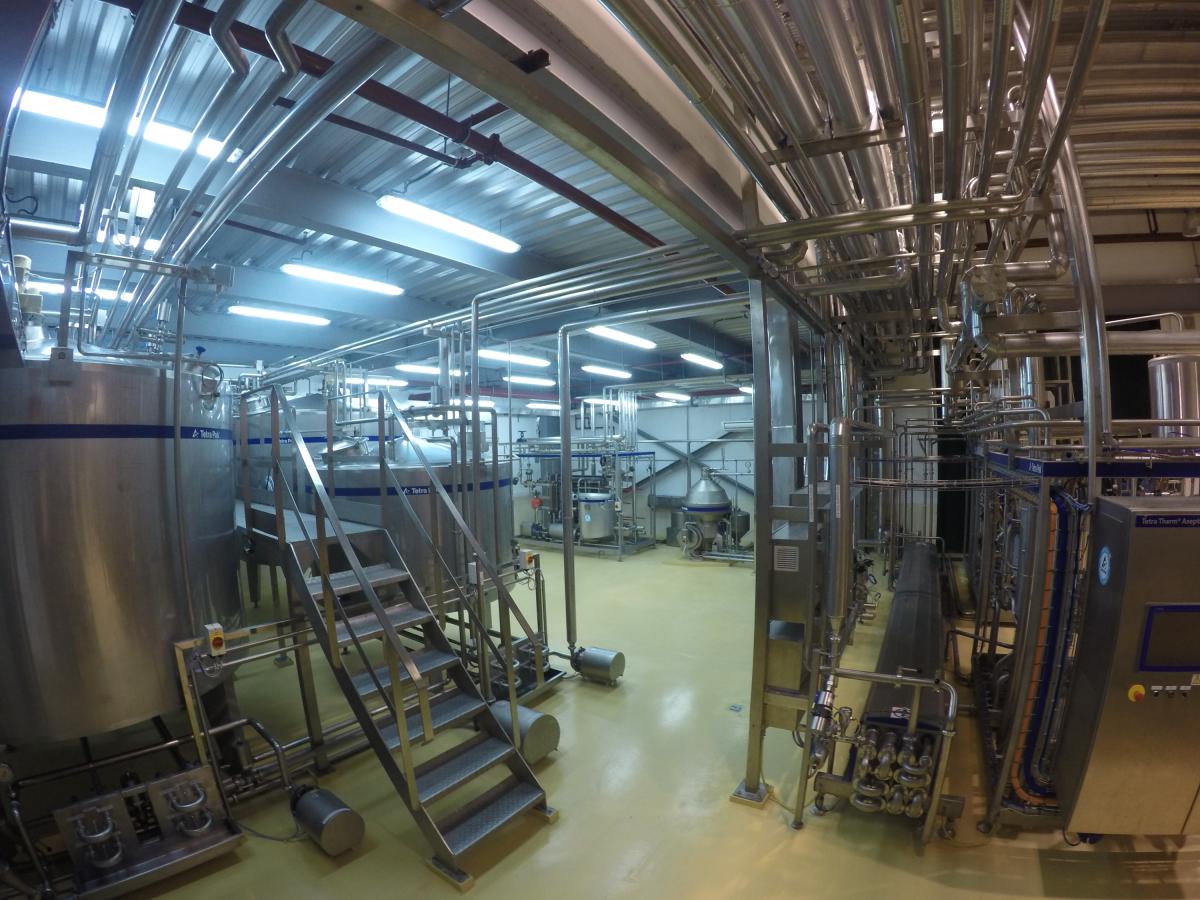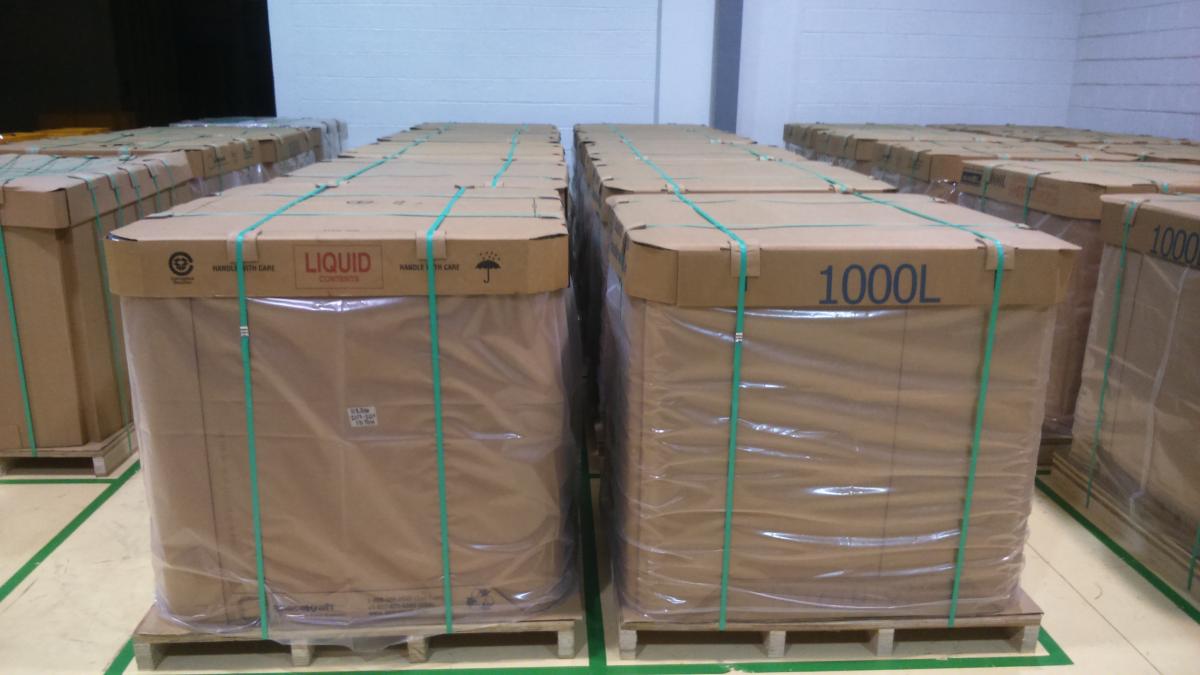TAPPING the rich source of fine coconuts in the Philippines, Eau de Coco Inc (EDCI) is fast gaining momentum in the production and export of pasteurized coconut water and frozen coconut meat since it set up shop in Batangas in 2014. The company’s high-tech processing and packaging choices, complemented by a strong R&D, help to provide customers with the unadulterated flavor and freshness of products that can last for well up to a year.
FPMJ recently connected with Martial Beck, EDCI Director of Business Development, to learn about the company and its process.

Martial Beck, Director of Business Development, Eau de Coco Inc
Please tell us about Eau de Coco. What is the size of the company and who currently run/s it?
Eau de Coco Inc. (EDCI) is a Philippine corporation located in Batangas, about 90 minutes’ drive south of Manila. The company has Filipino, Chinese and some European shareholders, and is, as of early 2017, exporting pasteurized and UHT-treated coconut water around the world.
We currently have some 30 permanent staff and when needed, employ temporary workers. Our production capacity is 20 million liters/year. This means we buy close to 45 million coconuts in a year, which provides livelihood for many farmers and their families.
What is the mission and vision of EDCI?
EDCI was created with the clear mission to produce deliciously refreshing young coconut water (with a shelf-life of 12 months) while spreading its wonderful health benefits. Only recently has coconut water been getting global attention due to the increasing shift in consumers’ thinking about adopting more healthful lifestyles. Our goal, therefore, is to deliver the health benefits of great-tasting organic coconut water – with no preservatives whatsoever – that will be accessible and enjoyed by millions of people around the world.
Does the company have its own coconut plantation in Batangas? Is there a partnership between local coconut farmers and Eau de Coco? If yes, how does this work?
As we do not have our own coconut plantation, we work closely with coconut farmers and traders. Part of our vision is to give the coconut farmers a guaranteed income, as we enter into long-term agreements with them. We plan to help farmers improve their livelihood by encouraging them to do some intercropping. We will provide training and will work with various organizations to supply the necessary seedlings. Assistance and guidance will also be given to find off-takers for their produce. We are soon starting the organic certification of our plant, so that we can supply organic certified coconut water, made from coconuts that are harvested from organic farms.
Producing coconut water and meat seems quick and easy, but it entails quite an investment. Can you tell us about the investment made in technology and equipment for the Batangas facility?
EDCI invested in the high-quality process technology of Tetra Pak, a company with a strong track record in processing coconut water. We extract coconut water and coconut meat. The meat is blast-frozen and the water undergoes a process of pasteurization and UHT treatment. We opted for direct steam injection for the UHT treatment. Once processed, the water is packaged in aseptic bags that are protected in cartons to be transported in containers. We are very strict with quality control and quality assurance. Hence we invested in our in-house laboratory.
There are many types of coconut and the best are said to be found in the Philippines. What type of coconut is used for your products? Is there a difference in quality between young and old coconut in terms of nutrients, and flavor and other sensory characteristics?
Yes, Philippine coconuts are very delicious and sweet. The most common variety found in the provinces of Batangas and Quezon is called the “Tall Laguna” coconut. At EDCI, we select young coconuts, aged from 7 to 9 months, to achieve our characteristic delicious taste which is quite different from that produced by other manufacturers who use mature coconuts, aged 10 to 12 months.

A section of Eau De Coco’s facility shows modern and hygienic processing
The objective is to produce products with long shelf life and freshness. Please tell us about the process you use to produce both coconut water and coconut meat, to meet this objective.
The challenge indeed was to produce coconut water that would maintain as closely as possible the taste and flavor of fresh coconut water, and at the same time, as we are targeting the global market, to guarantee our customers a shelf-life of 12 months. To meet both objectives, we select mostly young coconuts, and we invested in a process of pasteurization and a direct steam injection UHT treatment. We have several large holding and blending tanks, therefore we can also offer our customers several types of blended coconut beverages.
What are annual production capacity and output for coconut water and coconut meat? Roughly how many coconuts are utilized annually?
Our annual capacity for the coconut water is 20 million liters; for the meat, it is about 250,000 kgs. We buy close to 45 million coconuts/year to achieve these yields.
What packaging is best to preserve the quality of frozen coconut meat?
After having extracted the water from the coconuts, we scoop out the meat which is then carefully cleaned. We manually remove all the bits of shell that inevitably stick to the meat, and we thoroughly wash the meat in coconut water. It is then packed in plastic bags of 2 to 5 kgs, which are vacuum-sealed. Once sealed, the bags of meat enter a blast-freezer.

1,000-liter bags of coconut water are packed in Spacekraft carton and ready for shipment
And for coconut water?
The coconut water is mainly packaged in bulk – in 1,000-liter bags. We are currently fine-tuning agreements to have the water toll-packed in aluminum cans and in Tetra Pak containers in facilities nearby and with world-class toll-packers in the countries of destination of our customers. We are also studying the possibility to have our own aseptic PET-bottling line in the future.
In addition to these two products, are there plans to release products like oil or dried desiccated coconut?
Eau de Coco Inc. will stay true to its mission to produce a deliciously refreshing coconut water. We are passionate about sharing the wonderful benefits of coconut water to the human body. Many athletes in the USA and Europe have embraced coconut water as their source of hydration and energy. In addition to coconut water, we also export the coconut meat, which is used in a wide variety of food and health products. In addition, we may soon sell powdered coconut water.
The coconut is prized not only for its water and meat, but the entire tree itself. Is the company also involved in the waste management of coconut husks and other parts unnecessary to your production?
The coconut tree is indeed the tree of life. Every part of it has a function. As to both the husk and the shell, they are certainly used in renewable energies. The shell is made into activated carbon, and the husk is used either as a biomass fuel, or its fiber segregated to be made into geotextile.
Finally, what is your experience with logistics in the Philippines?
The factory of EDCI is strategically located in an export processing zone in the province of Batangas, south of Manila. We therefore utilize the port of Batangas City for our shipments, which is less than one hour from our factory. We also intentionally located the plant at the crossroad of Batangas and Quezon provinces, two major coconut producing regions, so that we can guarantee a year around supply of coconuts.
For more information, contact:
Martial Beck
Company: Eau De Coco Inc. (EDCI)
Position: Director of Business Development
T: +63 43 455 6966
E: m.beck@eaudecoco.ph
W: www.eaudecoco.com
adidas Mutator
 iConnectHub
iConnectHub
 Login/Register
Login/Register Supplier Login
Supplier Login



























